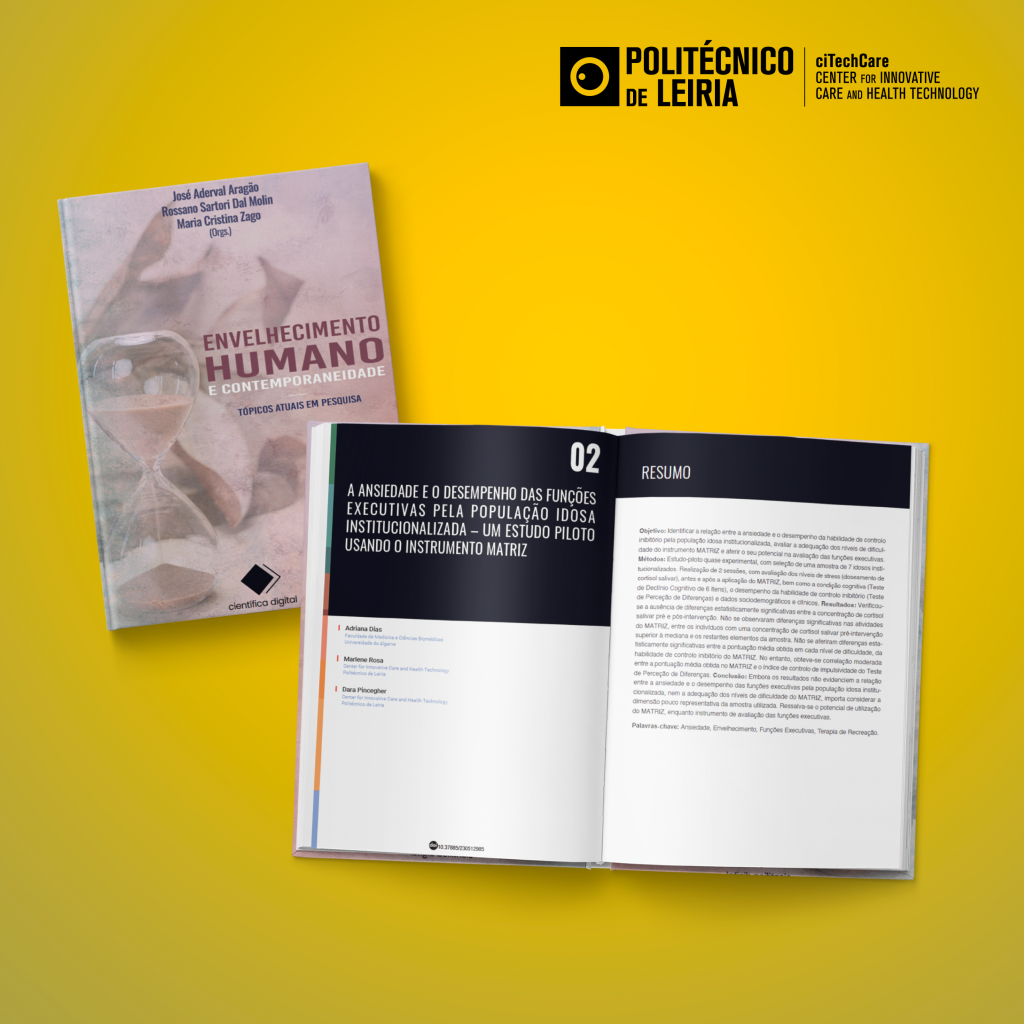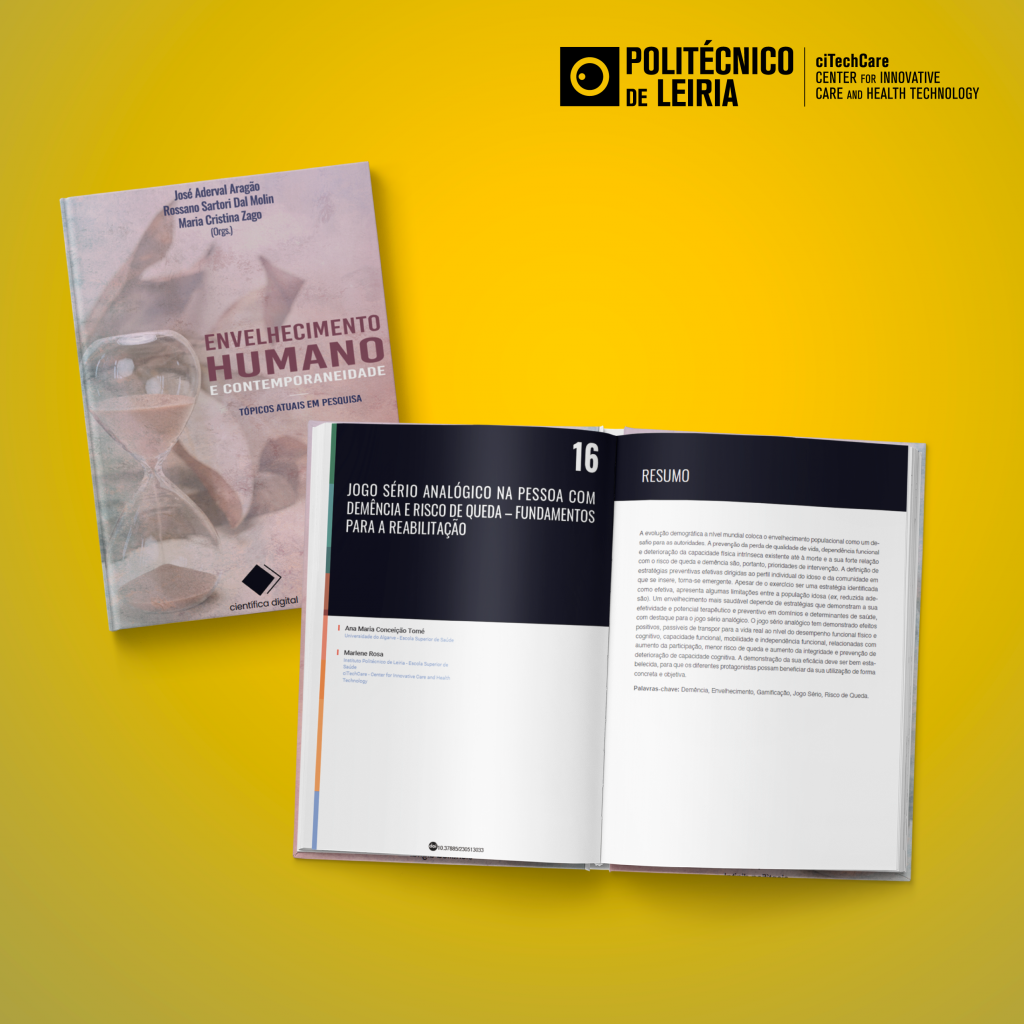

Two chapters of the book “Human Aging and Contemporaneity” were written with the collaboration of Marlene Rosa, integrated member and researcher of ciTechCare in rehabilitation and dementia in the elderly, and founder of the Agilidades project, company Spin-off of the Polytechnic of Leiria.
The study that gave rise to the chapter ‘Anxiety and the performance of executive functions by the institutionalized elderly population – a pilot study using the MATRIX instrument’, aimed to identify the relationship between anxiety and the performance of the ability of Inhibitory Control by the elderly population institutionalized, through the application of the analog game of cognitive stimulation MATRIX.
Throughout the study it was intended to determine the stress levels experienced by the institutionalized elderly population, as well as to assess the adequacy of the difficulty levels of the inhibitory control area of the game and the validity of its use, as an assessement instrument of cognitive performance of institutionalized elderly.
The results of the study showed that there were no statistically significant differences between the concentration of salivary cortisol before and after the intervention, as well as there were no significant differences in the activities of the MATRIX between individuals with a concentration of salivary cortisol pre-intervention higher than the median and the remaining elements of the sample.
Although the results do not show the relationship in question, it is necessary to consider the potential use of the MATRIX as an instrument for evaluating executive functions.
The other work entitled ‘Serious analog game in the person with dementia and risk of falling – foundations for rehabilitation’, addresses the relevance of playing a serious analog game (a board game), as a therapeutic strategy, especially in the elderly population.
In this chapter number 16, it is possible to read that the serious analog game, includes a strong motivational component, related to interaction, involvement and constant feedback (auditory, visual, tactile or proprioceptive) as well as processes of problem solving and constant attention and has demonstrated positive effects, which can be transposed into real life at the level of physical and cognitive functional performance, functional capacity, mobility and functional independence, increased participation, lower risk of falling and increased integrity and prevention of cognitive decay.
Alongside the regular practice of physical exercise, the serious analog game aims to increase health gains at the level of the physiological, mental and cognitive domain among the elderly population.
This work was funded by Portuguese national funds provided by Fundação para a Ciência e Tecnologia, I.P. FCT/UI/05704/2020
